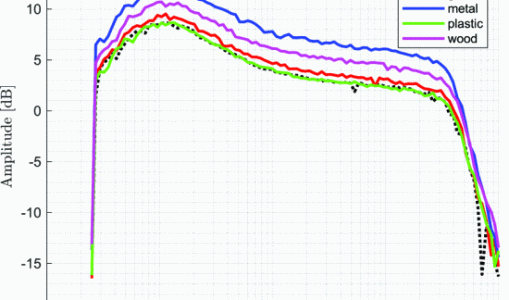Material Characterization Based on Capacitive and Dielectric Properties for Waste Recycling
Modern recycling systems face major challenges due to improper waste separation and contamination, which reduce efficiency and increase processing costs. To address this, our research introduces a capacitive sensing technique that leverages the dielectric properties of materials for accurate and real-time classification. The system operates by detecting small capacitance variations when different materials—such as glass, plastics, metals, wood, or liquids—are placed in the sensor’s field.
A specially designed high-sensitivity charge amplifier, coupled with multi-frequency excitation, enables the detection of subtle changes in capacitance. The experimental evaluation demonstrates clear differences in response profiles across material types, validating the feasibility of this approach for recycling scenarios. Special cases, including aqueous liquids in containers and human interaction, further highlight the robustness and adaptability of the method.
Beyond hardware design, the study explores the integration of machine learning algorithms to classify complex or deformed objects that challenge conventional image-based recognition systems. By combining capacitive sensing with AI-driven classification, the proposed system delivers a low-cost, scalable, and energy-efficient solution that can be deployed in automated recycling plants, smart bins, and IoT-enabled waste management infrastructures.
This research contributes to advancing sustainable waste processing technologies in line with circular economy principles and supports smart city initiatives. Future work involves expanding the sensing platform with electrode arrays, enhancing classification accuracy with deep learning, and enabling cloud-based continuous model refinement through edge–cloud collaboration.



